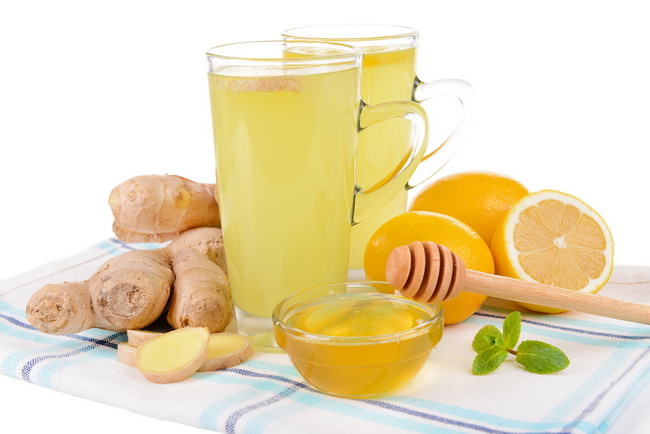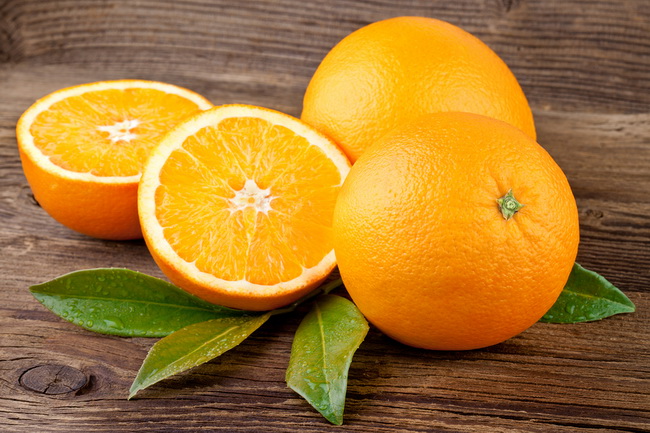- Make It Yourself Lavender Heart-Shaped Bath Bombs!
- 20 Things You Never Knew About “Down There”
- 12 Best Foods For Those Suffering From Arthritis Pain
- 12 Personal Hygiene Mistakes Almost Everyone Makes (Mom Never Told You About #4!)
- 15 Medicinal Plants And Herbs From The Cherokee People
- 12 Mind-Blowing Benefits Of Drinking Coconut Water During Pregnancy
- 12 Outstanding Winter Foods That Won’t Fatten You Up Like A Christmas Turkey
12 Ways to Treat Baby’s Cough & Cold That Pediatricians Won’t Tell You

Photo credit: bigstock.com
It is inevitable; no matter how carefully you watch your child’s eating habits and tries to keep their hands clean, they will come down with a cold or one of those nagging winter coughs sooner or later. Coughs are uncomfortable and irritate everyone who has to listen to them all night long. When very small babies get those nagging coughs or a winter cold, they generally have trouble sleeping, which means mom and dads must stay awake as well!
When it comes to young children, modern medicine really doesn’t have a good solution for coughs and certainly nothing that you can safely use for infants. Over the counter cough syrups do not work for children and can actually be downright dangerous for children under 6. Most cough syrups contain dextromethorphan (DXM), which can be harmful and even fatal! About ten percent of all children under six cannot metabolize this compound according to the American Academy of Pediatrics. The AAP doesn’t recommend any over the counter cough or cold medicines for children under six years.
So if you can’t use anything over-the-counter to get your baby (and yourself!) some relief from the coughing, what is a parent to do?
We have just the answer for you: Twelve of the best ways to naturally treat a baby’s cold symptoms or cough. Your pediatrician probably won’t tell you about these kinds of methods, but each and every one is a tried and true home remedy that parents have used for a hundred years or longer.
1. Essential Oil Steamy Bath
For those stuffed up noses and annoying night time coughs, start a hot bath or shower, allowing the hot water to run. Close the door and allow the steam to fill the bathroom. Add a few drops of pine, fir needle, or wild mountain sage essential oil to the water in the tub or to a bucket of water in the shower, and allow the steam to ease away that cough and open up the respiratory tract. This method only takes about fifteen minutes, and your baby will usually fall asleep afterwards.
2. Lemon
This time tested home remedy is a good one because not only does it help to clear up stuffy noses and ease sore throats, but the vitamin C in lemon will also provide important support for the immune system. Peel two lemons and squeeze out the juice. Put both peels and juice in a pan along with a few slices of ginger. Add just enough water to cover all of the ingredients. Turn on the fire and simmer for a few minutes, then cover and cool. Strain and then add a few teaspoons of raw, organic honey. You can add a bit more water if you feel the flavor is too strong. Offer this solution, warm but not too hot, several times each day.
3. Chest Rub
Using essential oils as a chest rub can go a long way when it comes to breaking up chest and nasal congestion. This works well for children eight years old and up. The typical over-the-counter chest rub, the one in the blue jar, uses petrochemicals. That does not sound healthy for anyone, let alone young children! For making your own chest rub, simply mix a few drops of camphor essential oil or eucalyptus oil in a tablespoon of coconut oil or jojoba oil. Rub this gently on your child’s chest and upper back. Allow it to warm the chest area for ten to twenty minutes, and then wipe off with a warm washcloth. Never apply essential oils directly to the skin!
Continue to Page 2

Photo credit: bigstock.com
4. Honey
First, we want to warn all parents that you should NEVER give honey to a child less than one year of age. Honey contains natural bacteria that can lead to botulism in infants less than one year old.
However, for those over twelve months of age, honey is a perfectly safe remedy for colds and cough. Raw, organic honey contains antioxidants, antibacterial, as well as immune boosting compounds that go a long way towards improving the immune system and easing those nasty coughs. It is also great for easing sore throat pain. Don’t buy that honey in a plastic bear stuff they sell at the supermarket, it is nothing more than corn syrup with artificial colors and perhaps one drop of pollen. Always buy raw, organic honey from a farmer’s market or your health foods store. The darker the honey, the better! For coughs, give your child one teaspoon of honey directly by mouth. Alternatively, you can mix two teaspoons of honey and the juice of half a lemon in one cup of water and give this to your child several times each day for relief from coughs, sore throats, and chest congestion.
5. Herbal Teas
Many herbal teas work wonders when it comes to easing coughs and lessen cold symptoms. Try teas such as slippery elm, licorice root, sage, wild cherry bark, or mullein. If you don’t have any of these herbs on hand or if you have trouble finding either the herbs or the teas, look for a tea that is very popular called Kids Throat Coat. This tea contains many of the herbs listed above and it is safe for kids. Better still; kids seem to like the taste!
6. Chicken Soup or Broth
For children older than twelve months, warm chicken soup is super soothing to both body and mind. This nutritious but light meal will help to relieve congestion, is easy on the body when it comes to digestion, and the antioxidants in chicken soup will help to speed healing. The journal Chest published a study in 2000 finding that chicken soup, mom’s favorite remedy for hundreds of years, contains numerous compounds that have a positive effect on upper respiratory tract infections. Feed young children chicken soup two or more times each day. Younger babies can try some warm chicken broth from a bottle.
Continue to Page 3

Photo credit: bigstock.com
7. Eliminate Dairy for a While
The bad news about dairy is that it only adds to the mucous problem. Even if your child has no problem with dairy products, remove it while they are sick, especially when they have a wet sounding, phlegmy type of cough. Removing dairy products for a time will reduce mucus. Of course, if your baby is breastfeeding or still drinking formula or cow’s milk as their main source of calories; don’t remove dairy products from their diet!
8. Ginger
Ginger has antibacterial, antiviral, anti-inflammatory, and cough-suppressing compounds, which makes it a terrific way to naturally relieve cough and cold symptoms. Ginger will induce sweating and expelling heat. This can help to relieve mild fevers. Ginger also has immune boosting compounds which can help to speed healing. Ginger tea is probably the best way to consume this substance. Put six cups of water, two whole cinnamon sticks in a pan, along with about half of a cup of sliced, fresh ginger. Simmer on the stove — but don’t boil it — for about 20 minutes, and then strain it. Add some raw, organic honey to taste and offer it to your child several times each day. For children younger than twelve months old, dilute this with a bit of warm water.
9. Breast Milk
For babies younger than six months old, try to give them breast milk to help fight off the virus. Some babies will refuse to nurse because they have difficulty breathing. Try to suction out some of the mucus out of their nose or try different positions, especially those that keep the baby in more of an upright position. Breast milk provides a unique balance of antibodies and nutrients that help to keep their bodies free from infection and to speed recovery.
Continue to Page 4

Photo credit: bigstock.com
10. Bishop’s Weed
Sometimes called carom seeds, Bishop’s weed is a very helpful remedy for helping babies who get colds or coughs. Bishop’s weed has antibacterial, immune improving, and anti-inflammatory compounds that can really help lessen the symptoms of the common cold. It loosens mucus so that your baby can more easily remove it from the body. The seeds of this plant are commonly made into a tea. If you can’t find the tea, look for carom seeds (not to be confused with cardamom seeds). Boil about ½ a teaspoon of these seeds in eight ounces of water for five minutes. Strain and when it is only warm, not hot, offer this to your child several times each day.
11. Apple Cider Vinegar
If your baby has a fever, apple cider vinegar is a very effective way to reduce their fever naturally. Apple cider vinegar is acidic, which means it will draw out body heat via the skin. Add one part apple cider vinegar and two parts of cool water in a bowl. Soak two washcloths in this solution and wring them out. Put one cloth on the baby’s forehead and one on the tummy. Allow them to work for ten minutes or so, and then replace them with freshly soaked washcloths. Repeat until your child’s fever has broken. For children older than twenty four months, you can add ½ a cup of apple cider vinegar to a lukewarm bath and have your child sit in the bath for five to fifteen minutes. Repeat as often as needed to keep their temperature down.
SEE ALSO: Top 12 Natural Ways to Improve Your Kid’s Immune System
12. Oranges
Oranges are high in vitamin C, which helps to increase the production of white blood cells. This will help to fight off germs and viruses. Vitamin C improves the immune system, which can naturally help to alleviate cold symptoms such as sore, scratchy throats, coughs, and stuffed up or runny noses. Children more than two years old can drink several glasses of freshly squeezed orange juice each day. For children less than twenty months old, dilute orange juice with equal parts of warm water and offer this to them during the day.
Extra Tips:
- Practice extra good hygiene to help keep from spreading germs to other family members
- Remove stuffed animals and wash them as they can harbor germs
- Add an extra pillow to your child’s bed to elevate the head so that mucus can drain
- Try saline nose sprays to help dry up runny noses or to unblock stuffy noses
- Keep school-aged children at home and away from other children
Don’t wait it out and hope that your child’s cough will improve. Treating a cough and cold symptoms with natural remedies, such as the ones listed above, is the best way to ensure that your child will recover as quickly as possible as well as making them as comfortable as possible.
References:

































